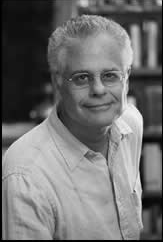Abraham Lincoln (1809 -1865)
In Lincoln's Melancholy: How Depression Challenged a President and Fueled His Greatness, biographer Joshua Wolf Shenk reports that Lincoln experienced two major depressive breakdowns at age 26 and age 31, which included suicidal statements that frightened friends enough to form a suicide watch. When he was 32, Lincoln wrote, "I am now the most miserable man living." Lincoln's longtime law partner William Herndon observed about Lincoln, "Gloom and sadness were his predominant state," and "His melancholy dripped from him as he walked." And another Lincoln friend reported, "Lincoln told me he felt like committing suicide often."
Lincoln's Antidotes: Abraham Lincoln, along with other famous depression sufferers such as Winston Churchill and Mark Twain, used humor as an antidote to depression. To boost his spirits, Lincoln told jokes and funny stories. A good story, said Lincoln, "has the same effect on me that I think a good square drink of whisky has to the old roper. It puts new life into me . . . good for both the mental and physical digestion." Lincoln said, "If it were not for these stories--jokes--jests I should die; they give vent--are the vents of my moods and gloom." Shenk concludes that "Humor gave Lincoln protection from his mental storms. It distracted him and gave him relief and pleasure . . . Humor also gave Lincoln a way to connect with people." In addition to humor, Shenk discovered that Lincoln utilized other major depression antidotes, including his love of poetry and a strong belief that his life had an important purpose.
William James (1842-1910)
One of America's greatest psychologists and philosophers, James suffered periods of depression during which he contemplated suicide for months on end. John McDermott, editor of The Writings of William James, reports that "James spent a good part of life rationalizing his decision not to commit suicide." In The Thought and Character of William James, Ralph Barton Perry's classic biography on his teacher, in the chapter "Depression and Recovery," we learn that at age 27, James went through a period that Perry describes as an "ebbing of the will to live . . . a personal crisis that could only be relieved by philosophical insight."
James's Antidotes: James's transformative insight about his personal depression also contributed to his philosophical writings about pragmatism, as James came quite pragmatically to "believe in belief." He continued to maintain that one cannot choose to believe in whatever one wants (one cannot choose to believe that 2 + 2 = 5 for example); however, he concluded that there is a range of human experience in which one can choose beliefs. He came to understand that, "Faith in a fact can help create the fact." So, for example, a belief that one has a significant contribution to make to the world can keep one from committing suicide during a period of deep despair, and remaining alive makes it possible to in fact make a significant contribution. James ultimately let go of his dallying with suicide, remained a tough-minded thinker with scientific loyalty to the facts, but also came to "believe in my individual reality and creative power" and developed faith that "Life shall be built in doing and suffering and creating."
Georgia O'Keeffe (1887-1986)
Artist Georgia O'Keeffe suffered significant periods of depression during her life, according to biographers Roxana Robinson (Georgia O'Keeffe: A Life) and Hunter Drohojowska-Philp (Full Bloom: The Art and Life of Georgia O'Keeffe). At age 46, O'Keeffe was admitted to Doctors Hospital in New York City following symptoms of anxiety and depression that included weeping spells and not eating or sleeping. At the time, her breakdown was attributed to the stress of not completing a Radio City Music Hall mural, but her biographers now conclude that O'Keeffe was caught between fear of public failure and rebellion against her control-freak husband, the renown photographer Alfred Stieglitz, 23 years older than O'Keeffe, who had an affair with a woman almost two decades younger than O'Keeffe.
(Note: You can view every article as one long page if you sign up as an Advocate Member, or higher).





